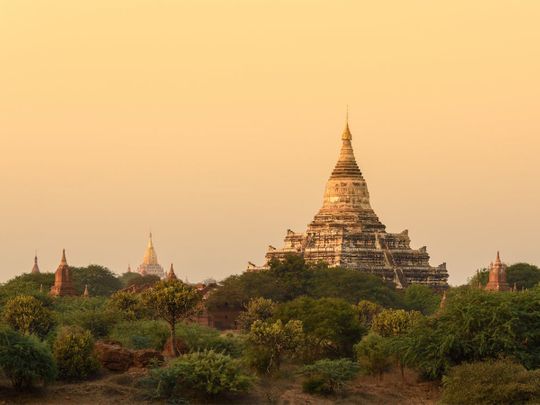
Three years after the February 2021 military takeover in Myanmar, the military is yet to consolidate its authority. The junta leader Senior General Min Aung Hlaing is facing increasing resistance within and isolation abroad. The regime now finds itself confronting the ethnic groups, who have been fighting the military regime for decades.
The Three Brotherhood Alliance, as they are known is made up of well-trained soldiers from the Myanmar National Democratic Alliance Arm, the Ta’ang National Liberation Army and the Arakan Army.
As a consequence of these setbacks six brigadier-generals have been taken into custody, reflecting the need to smother the threat of a contagion of insubordination or surrender.
The general’s once unassailable military is now gradually shrinking back into central Myanmar heartlands. Notwithstanding, this loss of territory to the resistance the regime’s fall is not imminent. The groups must still occupy more space, as they seek to constrict the heavily armed military force from the major centres in the country.
The violence has nonetheless badly dented the junta’s authority. It is left with a few friends internationally. Cracks seem to be appearing among the ultranationalist Buddhist support for General Min Aung Hlaing. A prominent monk recently called upon the junta’s second in command Soe Win to take over because, “the military is collapsing.”
A multiplayer game
The coup has backfired badly driving away a decade of democratic gains. International agencies and support were coming and Myanmar economy was on road to recovery. All this despite the constitution where the army had a veto over all civilian policy. The army was also left in full control of defence and security matters and vast military-owned businesses straddling gems, forests and energy projects.
General Min insists that new elections will be held. Few believe him after he annulled the last one swept by National League for Democracy under Aung San Suu Kyi, citing unproven allegation of voter fraud. In reality, they dissolved the government fearing that the new assembly might clip their power and privileges.
The generals best hope may still be negotiating with Suu Kyi, the 78-year-old democracy figurehead, who accepted the army’s hand in power to become the country’s de facto leader before the coup.
But even if she agrees to negotiate again with the military, her clout among the pro-democracy movement has lessened. While she retains considerable respect for her years in detention championing democracy, the new generation is unlikely to acquiesce to military’s role in a future democratic dispensation. It is now a multiplayer game where are the armed groups are becoming central to any political settlement.
While the military and the resistance slug it out the humanitarian crises is deepening. Around 18.6 million people — one-third of the Myanmar population will likely need humanitarian assistance in 2024. As of January, about 2.6 million people are internally displaced in the country. The World Bank has projected that Myanmar’s GDP will grow by just 1 per cent in 2024.
The Rohingya and the daily flow of refugees into neighbouring states means that it is no more an internal problem for Myanmar. The re-emergence of illicit drug cultivation and trade are causing international alarm.
The ASEAN of which Myanmar is a member, has until now been unable to persuade the Myanmar junta to live up to the ASEAN’s 5-point commitment, to which General Min agreed at the special Jakarta Summit in 2021.
As the turbulence in Myanmar increases, ASEAN will have to proactively involve itself, assert its common position agreed with the generals, and give them a way out.
Sajjad Ashraf served as an adjunct professor at the Lee Kuan Yew School of Public Policy, National University of Singapore from 2009 to 2017, He was a member of the Pakistan Foreign Service from 1973 to 2008 and served as an ambassador to several countries.






